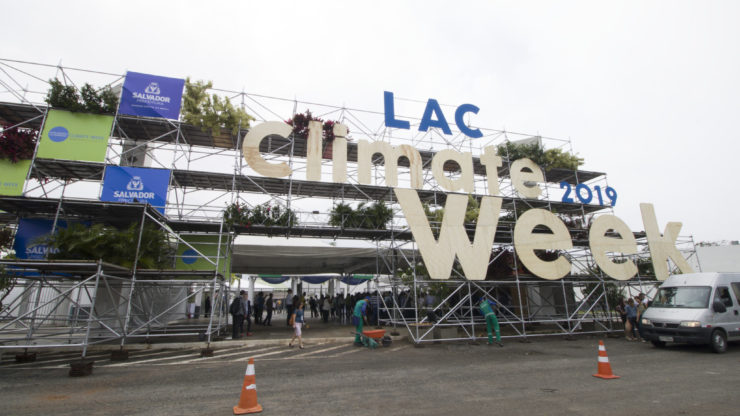Asia-Pacific Climate Week in Bangkok, Thailand (APCW 2019) wrapped up on Friday, with participants agreeing on what steps urgently need to be taken for the region to be able to profit from the advantages of the transition to low carbon and to be able to build resilience to the worst impacts of climate change.
The compelling social and economic reasons to rapidly shift to low carbon and resilience were outlined by high-level speakers who warned that current levels of ambition to tackle climate change are insufficient, putting the world on a path towards global warming of more than 3 degrees Celsius.
A key takeaway was that Asia-Pacific Region can lead the global transformation in line with a 1.5 Celsius, climate resilient world, the central goal of the Paris Agreement.
Participants at the gathering agreed that the transformation to low carbon and resilience in Asia can be driven not only by governments, but by dynamic subnational regions and cities, an innovative private sector, political leadership and finance.
A message from youth groups
Youth groups played an important role at Asia-Pacific Climate Week, engaging with participants and covering the discussions on social media accounts.
Over half of the global population of 1.8 billion young people live in the Asia-Pacific region, whose future is at stake.
Their message and those of the whole climate week will be important input to the Climate Action Summit convened by the UN Secretary-General on 23 September in New York. The results will also help build momentum towards COP25 in Chile later this year.
Countries are currently designing enhanced national climate action plans under the Paris Agreement and the Summit in New York will be an opportunity for governments and other actors to announce new plans and initiatives.
Focus on communities
Climate change adaptation planning and finance were a key theme throughout APCW 2019, with a focus on communities and ecosystems that need it most.
On the issue of building resilience to climate change, representatives of indigenous peoples from the Asia-Pacific region and academics as well as other stakeholders with diverse backgrounds engaged at an event where they stressed the need for a shift in mindset in the fight against climate change.
The group proposed concrete pathways to help transform societies to achieve long-term resilience for all.
Other issues discussed at APCW 2019 were carbon pricing, the enhanced transparency framework, capacity-building and regional climate finance, above all for highly vulnerable nations.
Climate Weeks attract 10.000 people
APCW 2019 is the third Regional Climate Week to be organized this year, following a Regional Climate Week in Africa in Accra, Ghana in March and a Regional Climate Week in Salvador, Brazil in August. Altogether a total of 10,000 registrations were recorded for the 3 events demonstrating the growing interest for these issues.
Organized every year in Africa, Latin America & Caribbean, and Asia-Pacific, the Regional Climate Weeks are unique collaborative platforms for government and non-Party stakeholders to address the full spectrum of climate issues under one umbrella and unity of purpose. The central aim is to bring together diverse stakeholders in the public and private sectors around the common goal of addressing climate change.
The climate weeks are organized by United Nations Climate Change in partnership with the United Nations Economic and Social Commission for Asia and the Pacific, the United Nations Environment Programme, the UNEP DTU Partnership, the United Nations Development Programme, the World Bank Group, the Asian Development Bank, the International Emissions Trading Association, the Institute for Global Environmental Strategies and the Climate Technology Centre and Network.
Next year a new Regional Climate Week in the Middle East and North Africa region will take place in the United Arab Emirates and will be delivered in collaboration with the World Green Economy Organization (WGEO).


